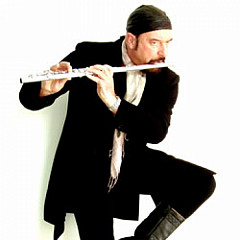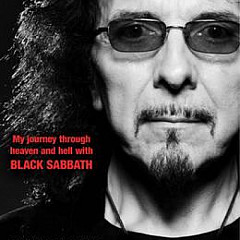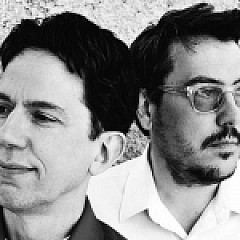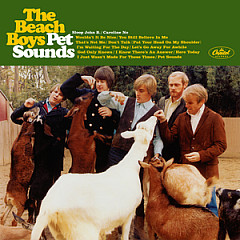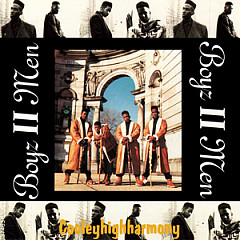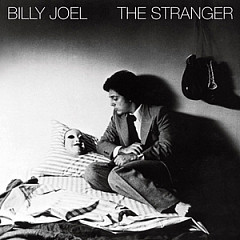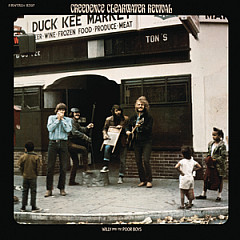
Getting his start at Sweet Silence in 1976, Flemming has worked with other notable hard rock/heavy metal bands over the years (Rainbow, Morbid Angel), as well as more pop-based artists (Tina Turner, Mew), and played a major role in Metallica's first-ever Grammy Award win when the song he co-produced with the band, "One," was named Best Metal Performance in 1990.
Flemming kept copious notes from these sessions and was able to easily recall the gritty details, like getting the bell sound on "For Whom The Bell Tolls," and using reverb on Ride. He also shared his thoughts on recording with the late/great Cliff Burton, and offered some pointers for aspiring producers. Just don't blame him for the disappearing bass on Justice.

Greg Prato (Songfacts): Looking back at the recording sessions for Ride the Lightning, Master of Puppets, and ...And Justice for All, which songs were the trickiest to record?
Flemming Rasmussen: I would say some of the first songs on Ride. "For Whom the Bell Tolls" was the first song we ever did to a click track - that was kind of tricky. That was also Lars [Ulrich] learning how to play to a click.
No song really stands out as being the hardest to record - they all had their bits. And it's always the parts that you think would be easy that take forever, and vice versa. Like, the fast double-bass machine gun part in "One," that was one take. He just flew straight through that.
Songfacts: What about a song such as "Orion," with all the different bass parts and harmonies?
Rasmussen: That was starting at one thing and then working through, and getting it done. It was actually really fulfilling, because it started to sound better and better. It wasn't hard getting the performance - it was more deciding which kind of performance we wanted.
Songfacts: Did Cliff Burton have all of the bass parts worked out beforehand?
Rasmussen: He had more or less all of the ideas himself, and he perfected them in the studio.
Songfacts: What about the title track from Justice, which is almost 10 minutes long?
Rasmussen: That took some effort to do because there were so many parts. It's four songs in one! I always get surprised when I hear it.
But that's played from beginning until the end - the bits. We did a bit, and when a bit was cool, we'd do the next bit, and so on. And this is still all analog tape, so that is all me punching in.
No, it has nothing to do with a time clock or a boxing match. After the basic track of a song is recorded, you can go back and add in parts at specific points. Hence, you are "punching in" new musical bits that were not there before.
Rasmussen: It was from the original demos. Metallica always do really good demos, and their songwriting is really focused. I would think that they change more now that they are actually demoing and recording at the same time because they record in their demo studio [Metallica HQ in San Rafael, California], which is a full-blown studio. So, once we got to the studio, they were pretty well prepared. We'd change this, we'd change that, but nothing major.

Songfacts: How would you compare working with the band during the Cliff era to the Jason era, in the studio?
Rasmussen: It's a pretty big difference, because the Cliff albums [that Flemming worked on] were recorded in Denmark, and the Justice album we did in LA. So, it was like two different worlds.
I think Jason is a fabulous bass player, and I think the bass he plays on ...And Justice for All was really up there... but nobody's ever heard it. [Laughs] Jason was a really good, tight, focused bass player.
Cliff fits in his own category. He was like a musician's musician, and he played by ear. You could have something he played that you went, Eh, and then the next time, it would be absolutely fantastic. So, with Cliff, it was waiting for him to get inspired and deliver. Everybody knew he could - especially everybody in the band - because we'd heard it so many times. Jason was more of a really solid, steady bass player that you knew you would give a really good performance.
Songfacts: What are your thoughts about the Justice album not having audible bass on it?
Rasmussen: I was as surprised as everybody else when I heard the mix. I had to decline doing the Justice album because I was booked elsewhere, and got into it after like, a month and a half [Metallica began recording the album with producer Mike Clink, and then eventually switched over to Flemming]. They had already gotten somebody else [Steve Thompson] to mix it. I had no hand in the mix, whatsoever. I know the guy who mixed it hated it because they turned the bass down so much. But that was all Lars and James [Hetfield].
Songfacts: Looking back, I'm surprised they did that, because on The $5.98 EP, which came out a year before Justice, the bass is actually quite audible.
Rasmussen: I don't know why. You would have to ask Lars and James about that. But it is almost not there. I know what he played, because I was there when he did it. But apart from that, I think it's a shame. I think it would have been a better album with the bass up.
"Metallica wanted to record in Europe [beginning in 1984], because the dollar rate was about twice what it was now, so they could get twice as much studio time in Europe for the same amount of dollars that they could in the States. They sat down and listened to a lot of albums they liked the sound of, and I think one of them was Difficult to Cure [Rainbow's 1981 album, which Flemming engineered], and especially Kirk [Hammett] really loved the guitar sound on that. So that was actually one of the reasons why they chose Copenhagen. Many people think I knew Lars [Ulrich] from beforehand, but I didn't even know Metallica existed. I hadn't heard Kill 'Em All when we did Ride the Lightning. I didn't hear it until we started recording the album. So that's one of the reasons why they did that - they wanted a studio with a good in-house engineer, so they could focus on getting their shit together. And we kind of evolved from that, so we did that together - me and the band."
"For Whom the Bell Tolls" is played to a click, and we edited in the bell effect so it would fit and be in tempo. I copied it and cut it in where it was supposed to come. So, once we got that tape started at the right spot, it simply played itself, and then dumped it into 24-track. [Slackers. AC/DC went to a foundry and had a huge bell made just so they could ring it on "Hell's Bells."]
Songfacts: Was there any difference as far as getting sounds with fast songs like "Damage Inc.", and slower songs like "Welcome Home (Sanitarium)"?
Rasmussen: We would change sounds all the time. I have elaborate notes on the whole Master of Puppets album, with amp settings and EQ settings and everything. We used six mics for each guitar, so we had a full stereo setup. For the first rhythm sound, we would record that in stereo - that would be the main thing. And then we would start mixing them to a mono track - that's when we started doubling. Because again, in this day and age, you would just do more tracks, but we were limited to 24 tracks times two, because we had synchronizers. I would change that constantly to suit the song. I would combine any of these in the way that I thought the song should sound.
Songfacts: I recall James saying in an interview that what set Ride apart from later Metallica albums in the '80s was the use of reverb.
Rasmussen: That was "the thing" in the beginning of the '80s. So, that was on there almost from day one, when we would listen back in the studio. Then, for Justice, we used absolutely no reverb. I would instead record with a lot of mics, so it was two-dimensional/three-dimensional. The mics would be in various levels depending on what sound we wanted.
Songfacts: What set Sweet Silence Studios apart from other studios, at the time?
Rasmussen: We had a really kick-ass drum room. We had the Trident mixer, which was not the newest thing, but some of the new desks that came out were not the greatest circuit desks, and ours was transformers and everything, and it just sounded better. So, that would be the main thing. And then of course... me! [Laughs]
Songfacts: Any advice to those interested in producing?
Rasmussen: Get some experience. And once in a while, move away from the screen and use your ears. And if you're tracking something and you don't think it's absolutely, 100 percent the way you want it, change it. That thing, "We can always change that afterwards" - it's a lot easier to change it while you record than it is to do it afterwards. Sometimes, just moving one mic will change everything. So, get to know your room, get to know your speakers, and don't be content with anything.
Songfacts: What are your thoughts about today's home recording technology?
Rasmussen: For a lot of people, that's really good, and I embrace it. I use computers myself. Luckily, they found out that reading a book about mixing doesn't make you a good mixer, so, that gives me a lot of work. [Laughs]
Songfacts: Would you be interested in working with Metallica again?
Rasmussen: Oh yeah. We're friends. I actually saw them five or six times last year. I was talking to Lars in Belgium last year, and he had asked me what I thought of the new album. I said, "That is the first album since The Black Album that I really would have liked to have done." He thought that was the best criticism ever. [Laughs]
Songfacts: An interesting thought: How different would The Black Album have been if you produced it instead of Bob Rock?
Rasmussen: The Black Album is absolutely fantastic. They actually hired me to be stand-by, because of what happened with ...And Justice for All. They started Justice with somebody else, and had to call me in. So, they wanted to make sure if it didn't work out with Bob Rock, I would fly over there the next day. I actually took a month off - on Metallica's tab.
June 14, 2018
For more info about Flemming and Sweet Silence Studios, visit sweetsilencestudios.com and facebook.com/sweetsilencestudios
Photos courtesy of Flemming Rasmussen
More Song Writing



